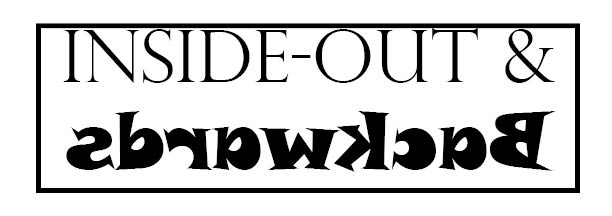
6. Guides
Alright, so we might argue that I have been using "guides" all along in setting up this series. To illustrate what I mean, let me tell about an experience I had this past week. I was in a class on the theory of language and basic linguistic principles and most of the class speaks a different second language.
We all switched our various dictionaries and our instructor gave us a sentence to translate into the language we had been assigned. I and Anthony, a speaker of Bulgarian, searched through our spanish dictionary and found many of the word elements, but without any real idea of the structure of Spanish or a knowledge of conjugation patterns, we came up with a laughable rendition--almost incomprehensible. Everyone laughingly switched dictionaries back and speakers familiar with each language corrected teh translation. I was reather chagrined and impressed when I saw how one Italian speaker and a Hungarian speaker managed the Japanese--many mistakes that made it unnavigable but fairly impressive. I realized then how necessary and essential the twin tools of grammar and vocabulary are and how vocabulary study lends itself well to independent study. Anyone with a small knowledge of pronunciation can memorize lists of words in a given language. This knowledge can help them with listening comprehension but without grammar, distinguishing word functions and parts can be difficult.
 Grammar study requires a guide or some kind of structured study method. I am going to spend the next week and a half researching independent grammar study and the texts that are available. I used the term "guide" instead of "text" because the best guide is living. Even a good grammar book speaks to us, in my case, in teh voice of a slight female Japanese doctor of language, or a missionary giving us tasks and methods to perform and gives us a structure and climate. Does this go against my claim of independent second language learning? I don't know, but I will keep posting my findings.
Grammar study requires a guide or some kind of structured study method. I am going to spend the next week and a half researching independent grammar study and the texts that are available. I used the term "guide" instead of "text" because the best guide is living. Even a good grammar book speaks to us, in my case, in teh voice of a slight female Japanese doctor of language, or a missionary giving us tasks and methods to perform and gives us a structure and climate. Does this go against my claim of independent second language learning? I don't know, but I will keep posting my findings.
1 comment:
It's okay that you're straying from "independent" language learning. If you're learning all alone, then what's the point? You learn languages so that you can speak them.
In two years I learned fluent Portuguese because I was using it to talk to people. After three years of Spanish study in high school I still can't hold an intelligent conversation in Spanish, because I never had people to practice with.
Practice makes all the difference.
Post a Comment